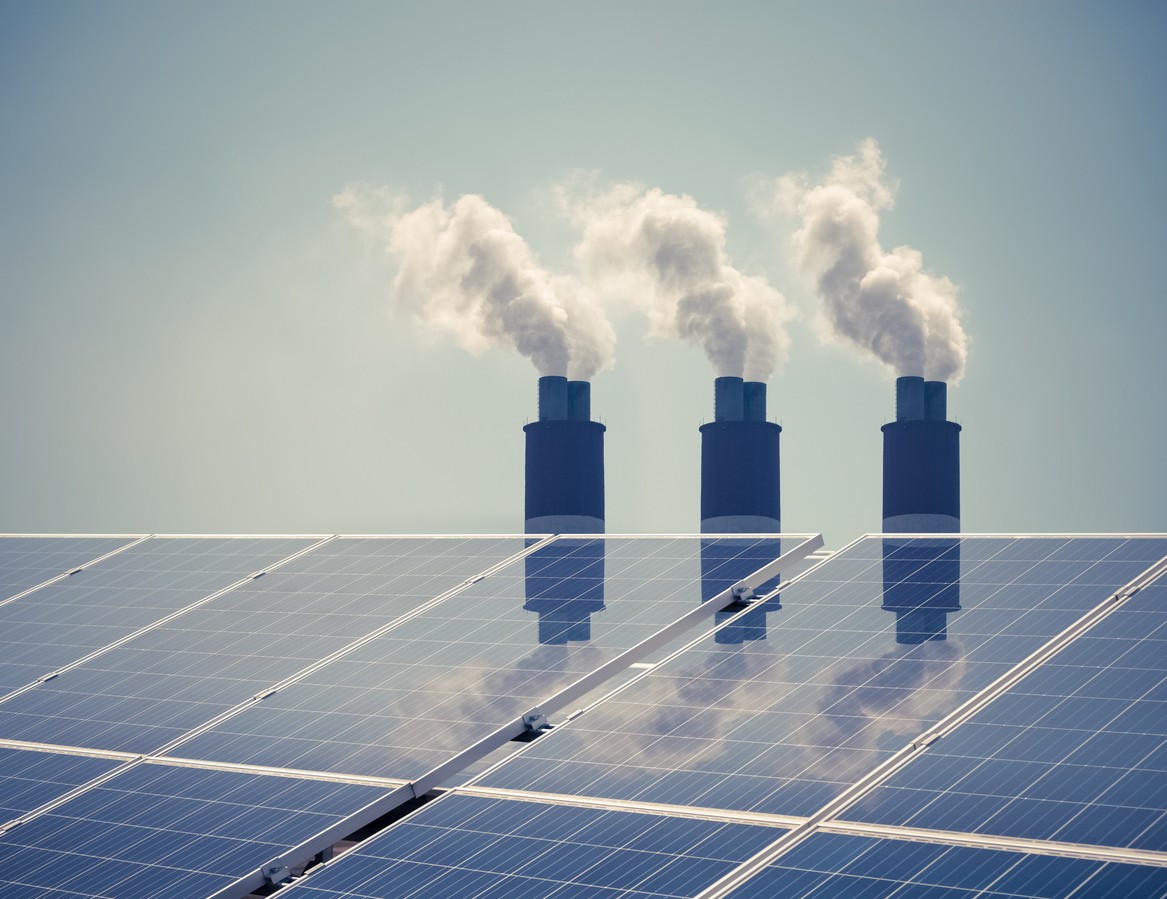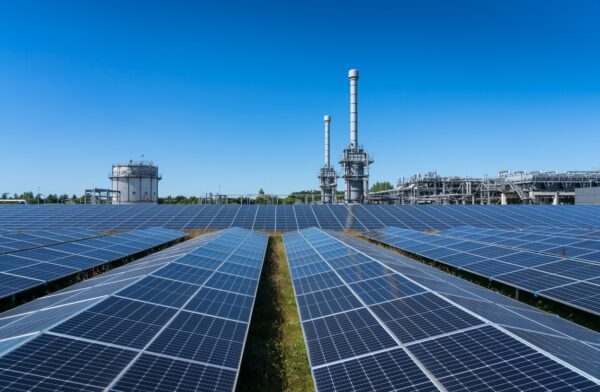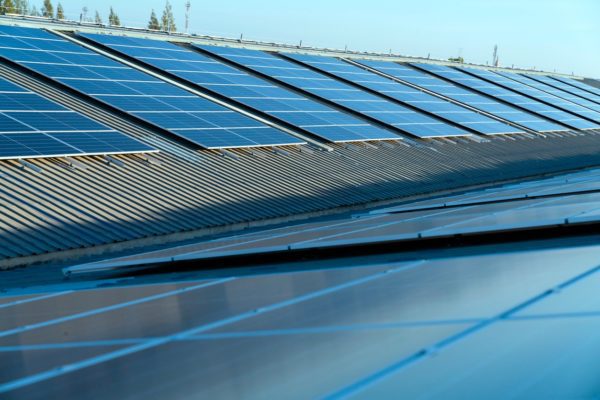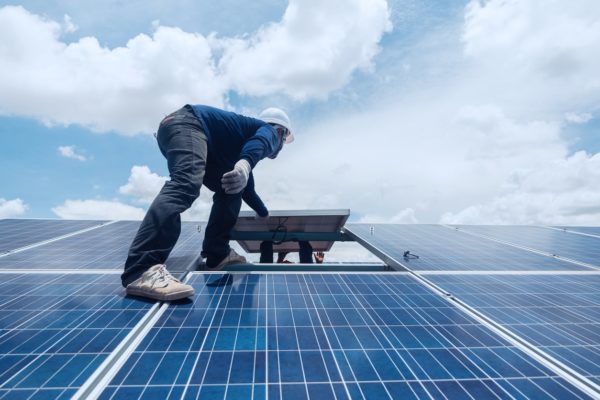
Installing an industrial solar system is one of the most viable options right now if we consider the energy crisis most of the world is going through. Nearly 80% of the energy production was from petroleum, natural gas, or coal, which were harmful to the environment.
Setting up an industrial solar system within your commercial vicinity is necessary. However, these units can only get the job done if you make the right decisions. As it’s a complicated and technical setup, you must consider a few things before you finalize installing them. Here’s what you should consider.
Top Considerations for Installing an Industrial Solar System

More companies are prioritizing clean, renewable energy sources for their operations. With the inclusion of green energy on a mass level, we could soon see a major change in energy consumption habits and trends within the country.
Various industry owners like clothing companies or almond farmers now prefer installing a commercial solar system. One of the best things about these industrial solar panel systems is their scalability.
Business owners with a relatively smaller working area can install multiple low-cost solar panels. With the inclusion of green energy, they can significantly reduce operations costs and overhead expenses and boost profits from the business.
On the other hand, a leading firm may use its solar setup to increase its market reputation. They can increase goodwill among customers by switching to sustainable energy for operations.
As a commercial operator, it’s your job to ensure your solar panel setup supports and meets your energy requirements. Better yet, solar panels should produce extra power, which companies can sell whenever required. It’s one of the best ways to ensure your investments are worth it.
There’s no point in installing these commercial solar panel units if they don’t suffice for the energy required. You can even sell off the excess electricity and get a subsidy from the government for production.
Interestingly, several factors matter while determining the correct power capacity required. Here are some of these factors:
1. Placement and Planning of the Solar Panels
The placement of the solar panels impacts their output and efficiency for performance. Several commercial solar panels fail to operate to their maximum capacity because they are overly placed.
Remember, the placement, angle of solar panels, and sunlight intensity are all technical aspects of solar panel units. Therefore, it’s best to let professionals handle them for your commercial building. You can discuss your requirements and the available space with them. The experts will find the most viable options for you accordingly.
2. Solar Panel Quality

The inverter efficiency and panel quality greatly impact the final output from the installed solar panel systems. All the power that a commercial solar power unit produces comes from the inverter, so the more efficient an inverter is, the more energy it will produce. Some of the main factors impacting solar panel quality include the following:
- Strength of mounting solution
- Resistance to weather
- Panel and inverter
- Quality of wiring
- Panel voltage output
- Optimum positioning for dust avoidance
- Inverter and panel matching
3. Energy Efficiency
Energy conservation and efficiency is the key role of any large-scale industrial solar system installed. There’s no point in spending thousands of dollars on commercial solar panels if the energy gets wasted.
Considering energy efficiency and minimizing the overall energy demand are two effective methods for making the most of a commercial solar system. With these energy-efficient changes within the commercial facility, tapping into the full system potential becomes easier.
Additionally, if the energy consumption reduces, the owners can switch to less costly and space-efficient solar systems.
4. Financial Limitations
A commercial building requires external budgetary while determining the suitable system for the area. With the utility-scale project, the professionals can create energy and even sell off the extra produced for extra money. However, since every industry has its services/products offered, the full spectrum of this limitation may vary.
Without proper financial planning, most solar system projects may become underfunded and short-staffed if the marketing or other departments require a higher budget or more professionals for operations. In cases like these, the industries wishing to incorporate the new model should find solutions accordingly.
5. Long-term ROI
Most companies adopting commercial solar panels for their business have perceptions of the long-term benefits of these solar units, with little data on generic facts involved. As commercial solar panels are now being used more abundantly, companies utilizing the tech want instant returns and profits.
Therefore, before you can set up these systems within your units, you need to identify the financial forecast of the problems properly.
6. Financing

When we talk about the budgetary factors involved with installing commercial solar is the long-term payment used. The payment directly impacts a business’s total ROI from the solar panel project.
Using a company’s capital to develop a solar project has high potential and increases the chances of a massive ROI. However, every company cannot finance a solar project with their capital, requiring these companies to take loans, pay interest rates, and a lot more.
You might even see these companies seeking other financial options, a solar loan designed specifically to pay a commercial solar company. The business owners can pick between secured and unsecured loans, which lenders provide readily for these projects. Additionally, enterprises will have various accesses to the credit line, making it one of the most versatile financing options.
However, getting a solar loan is pretty complex and requires the company to have a more secure approach. For instance, one of the biggest factors, in this case, is the bankability of the solar manufacturer.
Therefore, collaborating with a solar company with a good market reputation is the smartest way to make the most out of these projects. Getting greater incentives and approving newer, larger loans is easier with a good solar company.
7. Tax Incentives
Taxation is a major consideration for most commercial property owners. These businessmen pay thousands of tax dollars annually, but with tax incentives available, it can be easier. For instance, U.S. Congress allotted an extension on the investment tax credit for commercial units for the next five years.
Tax incentives like these let the organizations take advantage of the solar panel installations and get good pay. It’s a viable option because companies will be operating environmentally friendly and get cash backs from it as well.
Several municipalities and local bodies also incentivize individuals to install solar PV systems. You may qualify for a tax break, depending on your current location. Therefore, it’s best to check your local laws and apply for any tax incentives that you may qualify for.
8. Purchase Agreements for Solar
Most small business owners have a very small profit margin, hindering their growth as a company. These companies assume these solar panels are prohibitively costly. Since commercial operators have more financing options, they can easily get the capital required for their commercial solar panels.
There are several options to choose from—for instance, grants and leasing out equipment necessary for the solar panels are common options.
One of the most popular options like these includes the solar power purchase agreement (PPA), which allows a developer to arrange for the various requirements. These include the following for the commercial solar power unit.
- Planning
- Permitting
- Installation
- Financing
With the PPA, professionals can plan a solar panel system on a customer’s property for minimal costs. With the option of a power purchase agreement, businesses can reduce their electricity bills because the rate for the PPA agreement is lower than the generic utility costs they pay otherwise.
9. Commercial Marketing
Most companies and projects devise their respective approaches for marketing-related tasks. It includes business marketing, market share expansion, and long-term market growth. Some of the most common approaches these companies adopt include the following:
- Utilizing Networking Circuit
- Running Local Commercials
- Posting Internet Content
- Buying Radio Ads
In scenarios like these, business owners always require innovative methods for business marketing, and even commercial solar panels can help with this.
There’s a lot of impact of a company’s operational ethics on its market value. For instance, several reports show that a company’s industry reputation depends greatly on how it works.
The majority of the buyers and customer base prefer investing their money with a company that works environmentally safely. Therefore, companies that incorporate solar panels and a sustainable operation are likelier to stand out from the competition and increase their profits.
Get Solar Power Solutions for Your Commercial Buildings with the Help of Coldwell Solar
 Installing solar panels for your commercial buildings correctly is the key to long-term benefits. However, solar panel installers have a huge impact on your experience. Coldwell Solar can help you in this regard. Contact us today and get your commercial solar panels set up.
Installing solar panels for your commercial buildings correctly is the key to long-term benefits. However, solar panel installers have a huge impact on your experience. Coldwell Solar can help you in this regard. Contact us today and get your commercial solar panels set up.

